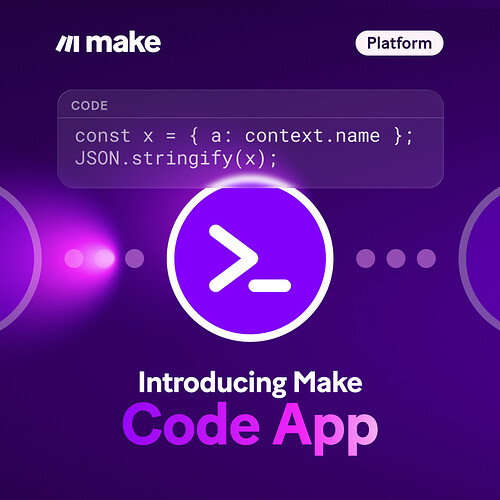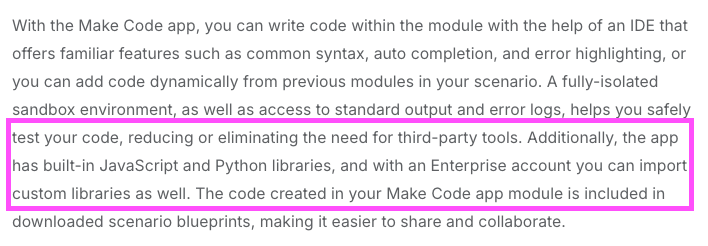Hey Makers
We’re super excited to introduce the Make Code app: now live in your scenario editor!
Thanks to the Make Code app, you can now write and run custom JavaScript or Python code directly in your Make workflows. This means more power, more flexibility, and better support for use cases to complement prebuilt modules. ![]()
![]() What can you do with it?
What can you do with it?
- Execute logic generated by AI agents
- Run complex calculations and data transformations
- Use 3rd-party libraries to extend functionality
- Return structured outputs for seamless scenario chaining
![]() How it works?
How it works?
Code runs securely in an isolated environment with 10s runtime and 1 CPU for all plans (60s/2CPU for Enterprise). You can pass data in from other modules, return values for later use, and debug with built-in logs.
Whether you’re an advanced user or just experimenting with what AI can generate, Make Code gives you more ways to build exactly what you need without leaving the platform.
![]() How is pricing for Make Code App calculated?
How is pricing for Make Code App calculated?
Make Code uses a simple, credit-based model: 2 credits are consumed for every 1 second of code execution time. Since most code executions finish in under a second, the vast majority of use cases will remain lightweight and cost-efficient. Enterprise users still benefit from extended runtimes (up to 300 seconds) and higher resource limits.


